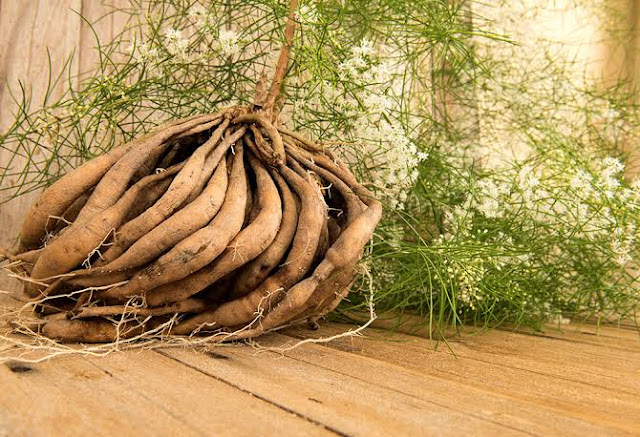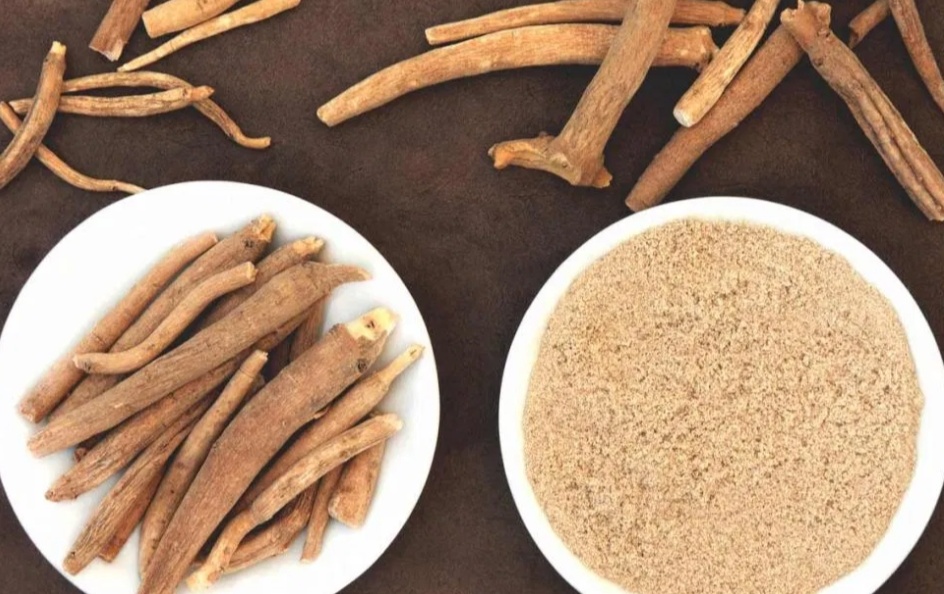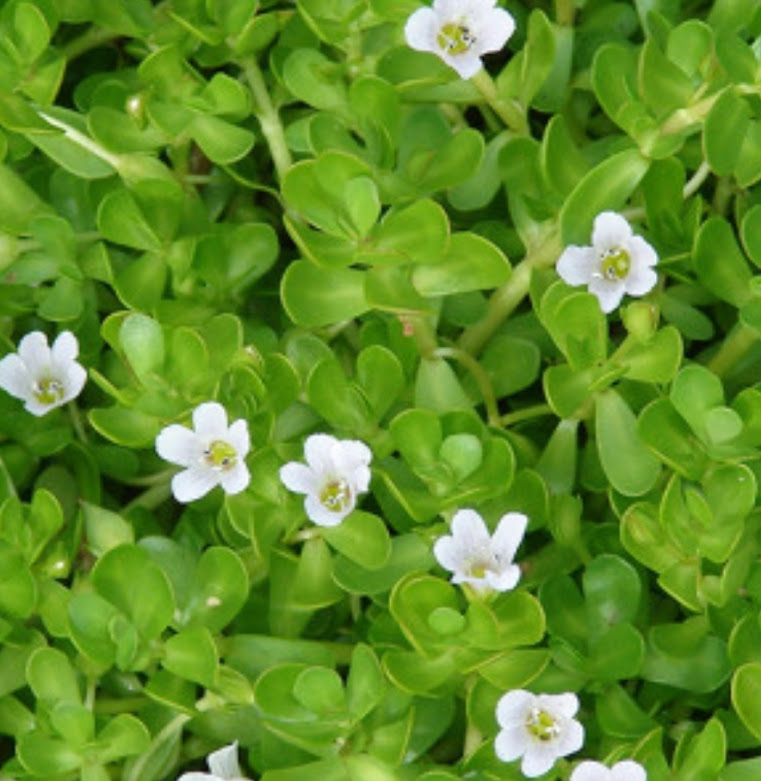Lemon - Health benefits, application, chemical constituents, tips and many more
Lemon/Nimbu
Lemon is an important medicinal plant of the Rutaceae family that originated in tropical and subtropical Southeast Asia. It has a distinctive berry with its internal parts divided into segments.
Lemon fruit (Citrus limon) is one of the most widely consumed fruits, either directly or used in soft drinks, alcoholic drinks, and cooking. Lemons are rich in citric acid, vitamin C, and polyphenols, which confer various health benefits, such as the alleviation of fatigue and lipid-lowering effects.
It shows Anti-oxidant, anti-inflammatory, antimicrobial, anticancer, antiparasitic, digestive, carminative, anti flatulent, lipolytic, anti-aging, hepatoregenerating and cardioprotective properties.
Click here for more information about Anti-oxidant and free radicals
It has different names in different languages such as Marathi name(nimbu, limbu), Hindi name(jamiri nimbu, khatta, pahari nimbu), English name(lemon), Telugu name(dabba), Tamil name(ezhumicchgai, elumicchai), Kannada name(dodda nimbe, brihat nimbe), Malayalam name(cherunarakam), Persian name(kalanbak, lemu-e-tursh), Arab name(limoon, qalambak), Urdu name(bara nebu, lembu, lemu, nembu)
Vitamins and minerals content
Vitamins : B1, B2, B3, B5, B6, B9, C, Choline
Minerals : Calcium, Iron, Magnesium, Manganese, Phosphorus Potassium, Zinc
• The fruit juice mainly contains fruit acids, mainly citric acid (8%) and sugars. Lemon peel consists of two layers: The outer layer (pericarp, zest) contains an essential oil (6%), which is composed of citral (5%) plus traces of citronellal and limonene (90%), α-terpineol, geranyl acetate and linalyl. The inner layer (mesocarp), in the other word, contains no essential oil but a variety of coumarin derivatives and bitter flavone glycosides. It also contains a very little potash, sugar and gum.
• The most important group of secondary metabolites in the fruit includes flavonoids and also other compounds, such as phenolic acids, coumarins, carboxylic acids, aminoacids and vitamins.
• lemon is determined by its high content of phenolic compounds, mainly flavonoids (e.g., diosmin, hesperidin, limocitrin) and phenolic acids (e.g., ferulic, synapic, p-hydroxybenzoic acids). The essential oil is rich in bioactive monoterpenoids such as D-limonene, β-pinene, γ-terpinene.
- flavonoids such as: flavonones(eriodictyol, hesperidin, hesperetin, naringin); flavones(apigenin, diosmin); flavonols(quercetin); and their derivatives.
- There are mainly two such compounds in the juice in the category of phenolic acids—ferulic acid and synapic acid, and their derivatives.
• The following fatty acids have been identified in C. limon pulp oil: behenic acid, erucic acid, gondoic acid, lauric acid, linoleic acid, α-linolenic acid, margaric acid, palmitic acid, palmitoleic acid, pentadecanoic acid, and stearic acid.
• Essential oil obtained from pericarp are: limonene (69.9%), β-pinene (11.2%), γ-terpinene (8.21%), (Figure 4), sabinene (3.9%), myrcene (3.1%), geranial (E-citral, 2.9%), neral (Z-citral, 1.5%), linalool (1.41%).
• The essential oil of the C. limon leaf differs in composition from oil obtained from pericarp. Its main compounds include: limonene (31.5%), sabinene (15.9%), citronellal (11.6%), linalool (4.6%), neral (4.5%), geranial (4.5%), (E)-β-ocimene (3.9%), myrcene (2.9%), citronellol (2.3%), β-caryophyllene (1.7%), terpne-4-ol (1.4%), geraniol (1.3%) and α-pinene (1.2%).
• The analysis of C. limon pulp showed the presence of aminoacids (asparagine, proline, alanine, γ-aminobutyric acid (GABA), glutamine, threonine and valine), organic acids (citric acid and malic acid), sugars (glucose, sucrose, β-fructofuranose, β-fructopyranose, myoinosytol and scylloinosytol) and osmolites (stachydrine, ethanol and methanol)
• Citric acid, ascorbic acid, and caffeic acid in the lemon flower are the acids found in citrus. Caffeine is present in flowers and lemon tree leaves.
• Mucilage is present in the seed, peel, and pulp of citrus fruits, it is a fiber-like and forms a gel-like structure which mixed with water. Citrus fruits have a higher ratio of fiber (soluble and insoluble) which reducing cholesterol levels, besides that; citrus seeds have psyllium, with improving the digestives system, and enhancing the elimination of cholesterol.
Properties and benefits
• Rasa (Taste) – Amla (Sour)
• Guna (Qualities) – Laghu (Light to digest), Teekshna (piercing)
• Taste conversion after digestion – Amla (Sour)
• Veerya (Potency) – Ushna (Hot)
Effects on Tridosha – unripe lemon decreases Vata and kapha but increases Pitta. Ripe lemon decreases Pitta and Kapha.
Click here for more information about Tridosha
Benefits
• Vakrashodhi – lemon juice, when used to rinse or when consumed, leads to cleansing of oral cavity. Hence lemon juice is a good remedy for bad breath or tongue coating problems.
• Rochana – Lemon increases digestion power.
• Dantaharshana – Being sour in taste, it may cause tingling sensation of the teeth.
• Trushna Nivarana – It relieves thirst. Hence, lemon juice is one of the preferred drinks to quench thirst.
• Shula Nivarana – relieves abdominal colic pain. This is the reason, lemon juice is the first home remedy, used for gastritis pain and colicky pain due to indigestion. This is the reason, it is the ingredient of innumerable Ayurvedic medicines used in digestive disorders
• Kasa Nivarana – Lemon is extremely useful to relieve cough. It soothes the mucosa of the throat.
• Kaphotklesha, Chardi Nivarana – It helps to relieve excessive accumulation of Kapha in stomach, leading to vomiting. Hence, lemon juice is consumed whenever one suffers from nausea, excessive salivation, vomiting etc.
- In such cases, two types of outcomes are predicted, either the nausea is relieved or the person vomits and expels out all the excessive, vitiated Kapha out of the body, due to lemon. It has cleansing action over the stomach, when there is excess of Kapha (heaviness, excessive gastric secretions and indigestion).
• Hrutpeeda – relieves pain in chest region, due to gastritis.
• Trushnahara – Relieves excessive thirst.
• Amadoshahara – It relieves Ama, a product of indigestion and malabsorption (A condition that prevents absorption of nutrients through the small intestine).
• Asya vairasya hara – Relieves bad breath
• Hrutpeeda – relieves pain in chest region, due to gastritis.
• Vahnimandyahara – it promotes digestion. Hence, it is an ingredient in many Ayurvedic medicines for indigestion such as
• Krumihara – It relieves intestinal worms.
• Vataghna –Balances Vata.
• Dipana, Pachana – Digestive, improves digestive enzymes
• Laghu – Light to digest
• Useful in abdominal colic caused due to imbalance of Vata, Pitta and kapha.
• Visha hara – It is a natural detoxifying herb. This is the reason, it is used in the purification procedure of many mineral ingredients, such as Iron pyrite.
• Varnya – improves complexion and skin texture
• Pushtiprada – it nourishes the skin.
- Being sour, it enters into the deeper pores and brings about cleansing action.
> lemon juice is
• Deepana – improves digestion strength
• Teekshna -Piercing
• Sugandhi – good smelling
•Mukha Shodhana – mouth- cleanser,
• Balances Kapha & Vata
• Krimighna – anti- infective.
• Pachana – It helps digestion of food.
Uses, Health benefits and application
1) Famous recipes for weight loss : Drinking a glass of hot water, mixed along with 1 – 2 spoons of lemon juice extract, early in the morning, on empty stomach decreases fat deposition.
2) Lemon juice, rind, and peel are used in a wide variety of foods and drinks. The whole lemon is used to make marmalade, lemon curd and lemon liqueur. Lemon slices and lemon rind are used as a garnish for food and drinks. Lemon zest, the grated outer rind of the fruit, is used to add flavor to baked goods, puddings, rice, and other dishes.
3) Cough and Cold : Most of the respiratory conditions including cough and cold are mainly due to Kapha, which has cold as its one of the qualities. So, during cough and cold, if you consume anything that has cooling nature, Kapha increases worsening the condition. As lemon is hot nature it helps reducing Kapha and indirectly cough and cold. If you add sugar and water, it increases coldness, so don't take lemon juice along with sugar and water.
- Take a lemon juice along with pinch of ginger and pepper, that would add more hotness and bring in extra qualities to fight against cough and cold.
Click here for more information about Ginger
4) Lemon juice is also used as a short-term preservative on certain foods that tend to oxidize and turn brown after being sliced (enzymatic browning), such as apples, bananas, and avocados, where its acid denatures the enzymes.
Click here for more information about Banana
5) Adding lemon juice to iron-rich foods improves the absorption of iron in the body. Hence, if you have iron-deficiency anemia, increasing your intake of iron-rich foods is not the only solution. Add lemon juice also to such foods for better bioavailability of iron.
7) When the fruit is consumed entirely in raw from, it is gets digested slowly since it is heavy for digestion. When taken along with food it increases the taste of food and the digestive agni too. Vata gets pacified and kapha pitta gets increased when taken in raw form.
8) Whole lemon is cut into pieces and it's pickle is made which is stored for long time. After done, put this pickle for 10-15 and then the pickle is eaten which imparts amazing taste with Nutrition. This pickle is stored for long time also. With the aging of 2-3 months it's taste gets improved.
9) The leaves of the lemon tree are used to make a tea and for preparing cooked meats and seafoods.
10) Lemons is the primary commercial source of citric acid before the development of fermentation-based processes.
11) Lemon oil is used in aromatherapy and perfumery in large quantities.
- Lemon consumption or even inhalation of the aroma (aromatherapy) has shown that mood and tension, nervousness, anxiety, exhaustion, swelling and fatigue have been improved and even reduced. Lemons are also expected to increase concentration, so many air spray and cooling machines are scented with lemon. Some individuals even squeeze some lemon drops and inhale.
12) Lemon leaves are taken and dipped in a cup of hot water. To this, small quantities of turmeric powder, salt, cumin seeds and jaggery are added and a soup is prepared. This soup is consumed by sipping. This is useful in the treatment of morning sickness of the pregnant, nausea, vomiting, tastelessness, indigestion, flatulence etc.
Click here for more information about Turmeric
Click here for more information about Cumin Seeds
13) Lemon juice is used to make lemonade, soft drinks, and cocktails. It is used in marinades for fish, where its acid neutralizes amines in fish by converting them into nonvolatile ammonium salts. In meat, the acid partially hydrolyzes tough collagen fibers, tenderizing it. In the United Kingdom, lemon juice is frequently added to pancakes.
14) Various researches showed that eating lemon peel can reduce cholesterol effectively. This is not because of lemon peel pectin level, but because of various active ingredients in the peel.
15) One part of lemon juice mixed with six parts of jaggery syrup added with cloves and pepper results in a cold drink which is best among the cold drinks. It is very light, alleviates vata dosha, stimulates digestive fire, improves taste perception and helps to digest all types of foods.
Click here for more information about Clove/Launga
16) The famous cold drink in india is lemon water(nimbu-pani)
- It not only provide coldness in summer but also improve taste, digestion and many more.
- Add lemon juice and jaggery in water with some amount of Ginger and clove and enjoy this delicious drink.
17) Adding lemon juice to food preparations or drinking lemon water in addition to a low-fat diet prevents deposition of fat and cholesterol in the body. Vitamin C present in lemon also inhibits oxidation of LDL and prevents clogging of the arteries.
18) Kidney stones or nephrolithiasis is a relatively common disease. The citric acid present in lemon inhibits the formation of kidney stones by preventing the urine from becoming too acidic. It also prevents the development of mineral crystals into kidney stones. Hence, adding fruits like lemon, which is an excellent source of citric acid, is an effective way to prevent and treat kidney stones.
19) The citric acid in lemon juice enhances the absorption of calcium and magnesium from the foods. These minerals help in lowering the blood pressure by dilating the arteries. This makes sure that the blood flows smoothly without putting any pressure on the inner walls of the arteries. It soothes and maintains the flexibility of blood vessels and arteries, thus lowering high blood pressure.
20) Squeeze some fresh lemon juice on soups and curries. In Indian restaurants, lemon pieces are often served with Indian food preparations to enhance the flavor of the food.
21) The peel can be used in the manufacture of pectin, a polysaccharide used as a gelling agent and stabilizer in food and other products.
22) Lemon might be beneficial in managing scurvy and associated symptoms.
- Scurvy is due to vitamin C deficiency. In scurvy, the blood vessels become weak and leak to cause abnormal bleeding. Symptoms associated with scurvy include fatigue, joint stiffness, joint pain, spongy and bleeding gums, fever, jaundice and loss of teeth. Lemon is a rich source of vitamin C which is a potent antioxidant and is necessary for the synthesis of collagen. Collagen provides strength to the blood vessels. Vitamin C also helps in absorption of iron thus, reduces the risk of bleeding and iron deficiency in people suffering from scurvy.
23) Lemon soothes the itching and alleviates the rash, reduces the age spots, and cleanses the face.
24) Juice of half lemon in a bucket of water during bath will help to remove bad odour of sweat during summer season. Lemon with turmeric powder and rose water is used to improve the skin complexion. It helps to fight skin damage caused by sun and pollution.
25) Lemon is also a very valuable raw material in the manufacture of stain removers, detergents, perfumes made of oil extracted from the skin, etc.
Note : 1) Overconsumption of lemons can wear away the enamel of your teeth, which increases the sensitivity of teeth.
2) Excess lemon intake can worsen the symptoms of GERD and gastric ulcers. Because lemons are acidic in nature, eating too many lemons can trigger heartburn in such individuals.
If you want to give more suggestion in this, then comment us, we will replay your comment.
If you like this post, then share it and follow us on Instagram (@healthyeats793) and many thanks for coming to our site Healthy eats
keep visiting
Follow us
1) Instagram
2) Facebook
3) Pinterest
🙏🙏Subscribe and share for latest updates 🙏🙏
keep visiting
Reference :
1) Bhojana kutuhalam
2) Plants (Basel). 2020 Jan; 9(1): 119. Published online 2020 Jan 17. PMCID: PMC7020168
3) Raja Nighantu
4) Scientific Reports. 2019; 9: 3671. Published online 2019 Mar 6. PMCID: PMC6403313
5) Chem Cent J. 2015; 9: 68. Published online 2015 Dec 24. PMCID: PMC4690266
6) PUBMED
7) Journal of Nutrition Metabolism. 2014; 2014: 912684. Published online 2014 Apr 10. PMCID: PMC4003767
8) Food Sci Nutr. 2016 Jan; 4(1): 103–109. Published online 2015 Jul 30. PMCID: PMC4708628
9) INTERNATIONAL RESEARCH JOURNAL OF PHARMACY. ISSN 2230 – 8407
10) International Journal of Chemical and Biochemical Sciences. 14(2018):55-6. ISSN 2226-9614)
12) Local tradition and knowledge
13) sciencedirect.com
14) Wikipedia
15) Journal of Ayurveda Integrated Medicine. 2016 Mar; 7(1): 11–13. Published online 2016 May 18. PMCID: PMC4910284
16) Journal of Medicinal Food. 2014 May 1; 17(5): 588–598. PMCID: PMC4026104
17) International Journal of Ayurveda and Pharma Research | June 2016 | Vol 4 | Issue 6
18) Agriculture world 2017. From krishijagran
19) imeage source : pixels
keep visiting







Nice information 👍
ReplyDeleteLemonious and fruitful information 👌👌
ReplyDeleteVery nice information 👍👍👌👌👌
ReplyDeletevery informative
ReplyDeleteYou are facing difficulty with indigestion. This article would be a great article to read. Thank you for sharing this article. Hope to see more articles on remedies. But if you want to gain healthy weight . You Can check out Kasratshala blog on easy weight gain now.
ReplyDeleteLemon helps us to stay hydrated, makes us feel good and many more benefits in losing weight. Do you know we must do stretching before a workout?
ReplyDeleteThanks for sharing great informative about lemon.
ReplyDeleteGynecologist Hospital
24 Hours Pharmacy
Lab Services
Nice blog, thanks for sharing with us.
ReplyDeleteIt contains a lot of information. If you are interested to read more blogs then visit.
healthy diet and exercise
fitness and healthy diet
best diet for fitness training
Best Food For Stamina
Thanks for Sharing more details about Lemon plant Saplings in Tamilnadu
ReplyDeleteThis comment has been removed by the author.
ReplyDeleteHey Nice Blog!!! Thank you for sharing information. Wonderful blog & good post more relative Lemon plant Saplings in Tamilnadu
ReplyDeleteNice blog. Keep it up👍
ReplyDeleteGreat information
ReplyDelete